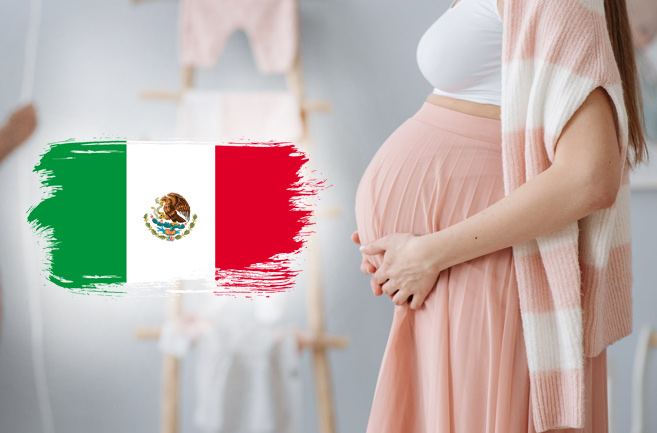What are the Risks for Surrogate with Twins?

Gestational surrogacy itself is a long and complex process as many things go unexpected. Still, it is one of the most commonly used assisted reproductive technologies (ART) along with third-party reproductive services to have babies for infertile couples, gay couples, and single males.
In IVF having twins is common and out of 5 successful IVF pregnancies, one is twins. However, having a surrogate carry twin can be a rewarding and fulfilling experience, but it can also come with certain risks and challenges. In this article, we will discuss the risks for surrogates with twins.
Contact us directly for a free consultation!🤝
📲 +91-8800481100 ( WhatsApp, Line, Viber)
 What are the Risks for Surrogate with Twins?
What are the Risks for Surrogate with Twins?
Here are a few potential risks for a surrogate with twins to consider:
#1. Higher risk of complications for the surrogate:
Carrying twins can increase the risk of complications for the surrogate, including preterm labor, gestational diabetes, and high blood pressure. It is important to carefully monitor the surrogate’s health during the pregnancy and to be prepared for any potential complications.
#2. Higher risk of complications for the babies:
Babies born to a surrogate are more likely to be premature and have low birth weights, which can increase the risk of health problems. This risk is even higher for twins, who are more likely to be born early and have low birth weights.
#3. Increased cost:
Having surrogates carry twins can also be more expensive, as there may be additional medical costs associated with the pregnancy and delivery, as well as additional compensation for the surrogate.
#4. Increased emotional and logistical challenges:
Having a surrogate carry twins can also be more emotionally and logistically challenging, as there may be more demands on the surrogate’s time and energy, and more logistical challenges to coordinating care for the babies.
#5. Increased risk of preterm birth:
Carrying twins is associated with an increased risk of preterm birth, which can have serious implications for the health of both the babies and the surrogate. Preterm babies are more likely to have developmental delays and other health problems, and they may require specialized medical care after birth.
#6. Increased risk of complications during pregnancy:
Carrying twins is also associated with an increased risk of complications during pregnancy, including high blood pressure, gestational diabetes, and placental problems. These complications can have serious implications for the health of both the babies and the surrogate.
#7. Increased risk of cesarean delivery:
The majority of twins are delivered by cesarean section, which carries its own set of risks, including the risk of infection, bleeding, and complications from anesthesia.
#8. Increased risk of postpartum depression:
The physical and emotional demands of carrying and delivering twins can be intense, and some surrogates may experience postpartum depression after birth.
It is important to carefully consider these risks and to work with your medical team to manage any potential complications.

What are the medical complications for twin babies?
Many intended parents think having twins is like getting two babies for the price of one, but the reality is just the opposite. Twin pregnancy exposes the carrier and babies to numerous health risks and also opens doors to future complications and unknown financial burdens. If all goes right or as planned, it is a satisfying feeling but if things go the wrong way, it might be hard to manage the situation.
Matter of fact, many IVF clinics that we work with do not transfer 2 embryos to a surrogate mother at all to avoid any unanticipated conditions for all involved parties.
Arriving twins can be a rewarding experience, but it can also come with certain risks and challenges. Here are a few potential medical complications that twins may be more prone to:
#1. Preterm birth:
Twins are more likely to be born prematurely, which can have serious implications for their health. Preterm babies are more likely to have developmental delays and other health problems, and they may require specialized medical care after birth.
#2. Low birth weight:
Twins are also more likely to have a low birth weight, which can increase the risk of health problems and complications. Low birth weight babies may be more prone to respiratory distress, hypoglycemia, and other medical problems.
#3. Twin-to-twin transfusion syndrome (TTTS):
This is a condition that can occur when twins share a placenta and one baby receives more blood and nutrients than the other. TTTS can be serious and may require medical intervention to improve the chances of a healthy outcome for both babies.
#4. Other complications:
Twins may also be more prone to other complications, including placental problems, gestational diabetes, and high blood pressure. It is important to work with your medical team to manage any potential complications and to ensure the best possible outcome for both babies.
Overall, twins may be more prone to certain medical complications, but with careful monitoring and management, it is often possible to have a healthy pregnancy and delivery. It is vital to work with your medical team to identify and manage any potential complications and to follow their recommendations to ensure the best possible outcome for both babies.
 What are the complications in women who carry twins?
What are the complications in women who carry twins?
For the surrogate mother or carrier or for the intended mother who is carrying her baby herself, twins is not only discomforting but also expose them to unforeseen medical situations.
Here are a few potential complications that women who carry twins may be more prone to:
#1. Preterm labor:
Carrying twins is associated with an increased risk of preterm labor, which can have serious implications for the health of both the babies and the surrogate. Preterm babies are more likely to have developmental delays and other health problems, and they may require specialized medical care after birth.
#2. Gestational diabetes:
Carrying twins is also associated with an increased risk of gestational diabetes, which is a type of diabetes that occurs during pregnancy. Gestational diabetes can increase the risk of complications for both the babies and the surrogate, and it may require careful management to ensure a healthy outcome.
#3. High blood pressure:
Pregnancy-induced hypertension (PIH) is a type of high blood pressure that can occur during pregnancy, and it is more common in women who are carrying twins. PIH can increase the risk of complications for both the babies and the surrogate, and it may require careful management to ensure a healthy outcome.
#4. Placental problems:
Carrying twins is also associated with an increased risk of placental problems, such as placental abruption, which can be serious and may require medical intervention to improve the chances of a healthy outcome for both babies.
What is the extra expense with prenatal for twins pregnancy?
Pregnancy with twins can involve additional expenses, as there are typically more medical visits and tests required to monitor the health and development of the babies.
Here are a few potential additional expenses that you might consider in case of twin pregnancy:
#1. Additional medical visits:
Pregnancy with twins typically involves more frequent medical visits to monitor the health and development of the babies. These visits may include ultrasound exams, non-stress tests, and other tests to check on the babies’ growth and well-being.
#2. Specialized care:
If the twins have any medical complications or need specialized care, the costs may be higher. For example, if one of the twins is not growing at the same rate as the other, or if they are born prematurely, they may require additional medical interventions or specialized care, which can be costly.
#3. Prenatal vitamins:
It is important to take prenatal vitamins during pregnancy, and women who are carrying twins may need to take higher doses or more specialized prenatal vitamins. These vitamins can be more expensive than regular prenatal vitamins.
#4. Other expenses:
Pregnancy with twins may also involve other expenses, such as additional maternity clothing, a larger car, or other transportation accommodations, and possibly hiring additional help around the house.
Overall, pregnancy with twins can involve additional expenses, and it is important to carefully consider these costs and plan accordingly.
Read more about risks for surrogate with twins:
Having twins babies with different fathers

What are the complications during the birth of twins pregnancy?
Giving birth can be worrying for many women, and it really becomes nerve-racking if they are expecting the birth of twins. The same for goes the surrogate mother, if she has to deliver 2 babies, so needs to be prepared mentally and physically with lots of support within the family.
During pregnancy, she can make herself aware of the risks that come with twins and prepare herself for pending birth. It is seen that intended parents, surrogates, and surrogacy service providers are more concerned and anxious during twins’ pregnancies than single pregnancies, due to uncertainty of the way things.
Here are a few potential complications that can occur during the birth of twins:
#1. Preterm labor:
Twins are more likely to be born prematurely, which can have serious implications for their health. Preterm babies are more likely to have developmental delays and other health problems, and they may require specialized medical care after birth.
#2. Twin-to-twin transfusion syndrome (TTTS):
This is a condition that can occur when twins share a placenta and one baby receives more blood and nutrients than the other. TTTS can be serious and may require medical intervention to improve the chances of a healthy outcome for both babies.
#3. Breech position:
If one or both of the twins are in a breech position (meaning their feet or buttocks are facing down instead of their head), it may be more difficult to deliver them vaginally. In these cases, a cesarean delivery (C-section) may be necessary. In anyways, most twin deliveries are planned with C-sections.
#4. Other complications:
There are other complications that can occur during the birth of twins, including placental problems, umbilical cord problems, and complications from cesarean delivery. It is important to work with your medical team to identify and manage any potential complications and to follow their recommendations to ensure the best possible outcome for both babies.
What is the extra cost for a twins baby’s delivery?
The cost of delivering twins can vary widely depending on a number of factors, including the location of the hospital, the specific medical needs of the babies, and the type of delivery. Here are a few potential additional expenses to consider:
#1. Additional medical visits:
Pregnancy with twins typically involves more frequent medical visits to monitor the health and development of the babies. These visits may include ultrasound exams, non-stress tests, and other tests to check on the babies’ growth and well-being.
#2. Specialized care:
If the twins have any medical complications or need specialized care, the costs may be higher. For example, if one of the twins is not growing at the same rate as the other, or if they are born prematurely, they may require additional medical interventions or specialized care, which can be costly.
#3. Delivery type:
The type of delivery can also affect the cost. Cesarean delivery (C-section) is typically more expensive than vaginal delivery, and it may involve additional expenses, such as the cost of anesthesiology and longer hospital stays.
#4. Other expenses:
There may be other expenses associated with delivering twins, such as the cost of additional help around the house or childcare, or the cost of additional maternity clothing or other supplies.
#5. International Surrogacy:
If you are doing surrogacy abroad, then you might need to spend twice the money on the embassy, DNA testing, visa processing fee, etc. The legal fee is almost double and you might need additional help to manage the babies even if they are healthy.
 What is the cost of NICU in the USA for 2 babies?
What is the cost of NICU in the USA for 2 babies?
The cost of neonatal intensive care unit (NICU) care for two babies in the United States can vary widely depending on a number of factors, including the length of stay, the specific medical needs of the babies, and the location of the hospital.
According to data from the Healthcare Cost and Utilization Project, the average cost of a stay in the NICU for one baby in the United States is $53,400, but this cost can range from a few thousand dollars to hundreds of thousands of dollars depending on the specific needs of the baby.
It is imperative to note that the cost of NICU care can be significantly higher if the babies require specialized medical interventions or if they have a prolonged stay in the NICU. Many hospitals offer financial assistance programs to help families cover the costs of NICU care, and it may be possible to work with your insurance company to help cover some of the costs.
If you’d like to learn more about IVF, Egg Donation, or surrogacy services globally, check out the rest of our website at IVF Conceptions. We offer legally secure and affordable surrogacy consulting services for FREE.
Contact us directly for a free consultation!🤝
📲 +91-8800481100 ( WhatsApp, Line, Viber)

 What are the Risks for Surrogate with Twins?
What are the Risks for Surrogate with Twins? What are the complications in women who carry twins?
What are the complications in women who carry twins?
 What is the cost of NICU in the USA for 2 babies?
What is the cost of NICU in the USA for 2 babies?